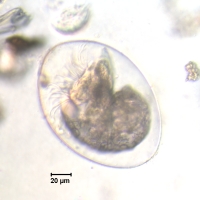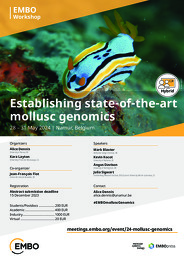About the Workshop

Molluscs, the second largest animal phylum after arthropods, are a fascinatingly diverse group. With an evolutionary history spanning more than 500 million years, their >90,000 extant species include some of the most behaviourally complex animals (e.g. octopus), classic evolutionary models (e.g. Cepaea colour polymorphism), worm-like deep sea species (Aplacophora), and economically damaging invasives (e.g. zebra mussels). Genome-wide comparisons within and among these groups are essential to understanding adaptive divergence, species decline, taxonomy, and more.
Despite this, genome sequencing lags behind other taxa. This is in part due to longstanding technological challenges, from high-quality DNA extraction to assembling genomes that may be highly heterozygous or repeat-rich. Some researchers are finding ways to overcome these challenges, yielding new methods and exciting results. This means that now is the perfect time to come together to share successful work, discuss remaining challenges, establish a network for collaborative work, and advance sequencing methods for everyone.
This hybrid workshop will bring together researchers from diverse fields of study who use whole-genome sequencing of molluscs. We invite presentations to share work that is completed, ongoing, or even hindered by the challenges mentioned above. This will create an opportunity to exchange ideas and experiences, learn more about state-of-the-art methodology, and build collaborative networks for the future. We especially encourage presentations from students and early career researchers.
Please note: In-person attendance is limited to 50 people. If registration exceeds this number, participants will be chosen based on how well their submitted abstracts (talks or posters) match the topic, and to maximize both gender and geographical representation. There is no limit to the number of people who can attend virtually (at a drastically reduced price).
Header image credit: Kara Layton
Small image credit: Alice Dennis
About EMBO Courses and Workshops
EMBO Courses and Workshops are selected for their excellent scientific quality and timelines, provision of good networking activities for all participants and speaker gender diversity (at least 40% of speakers must be from the underrepresented gender).
Organisers are encouraged to implement measures to make the meeting environmentally more sustainable.






